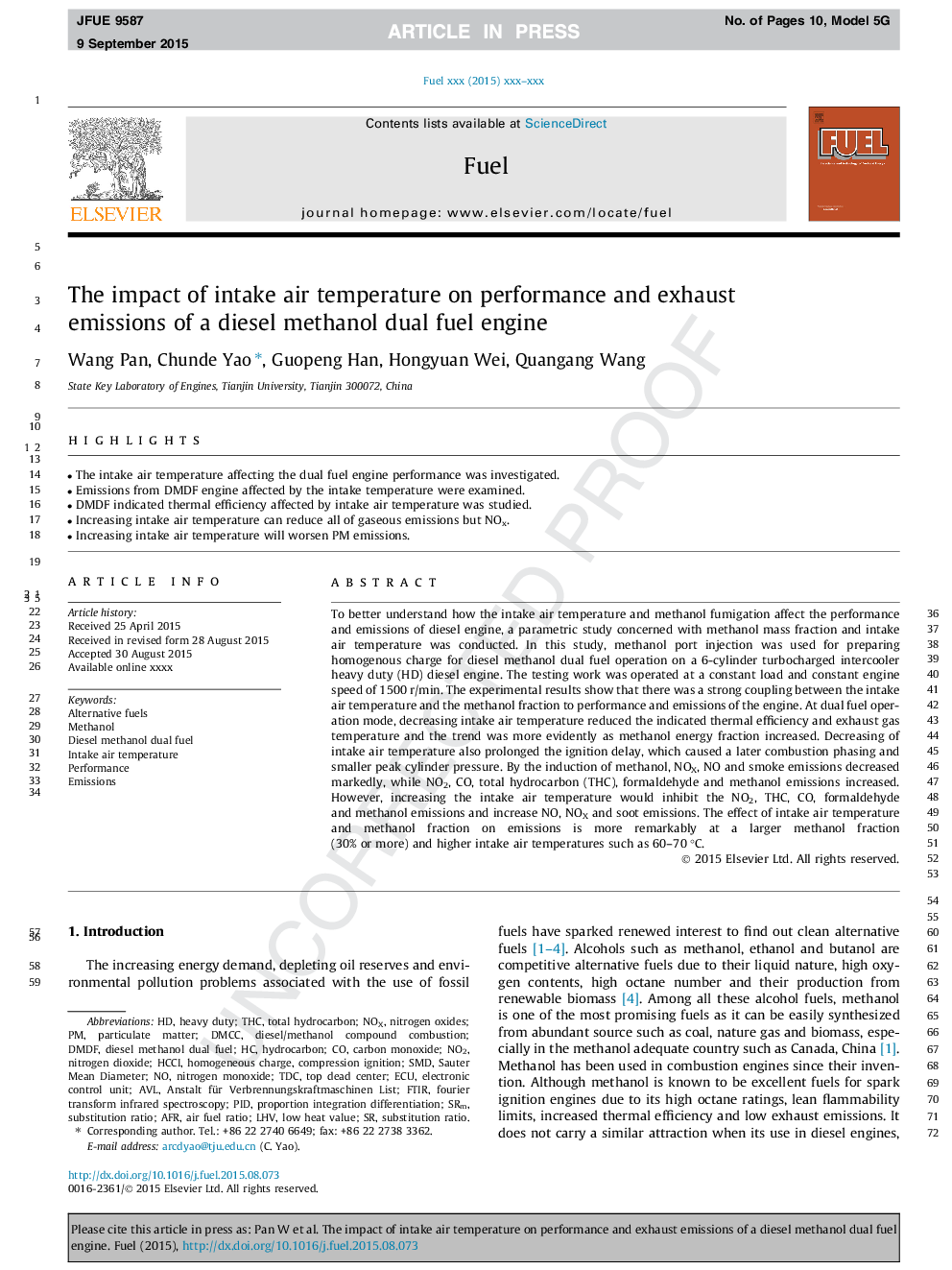| Article ID | Journal | Published Year | Pages | File Type |
|---|---|---|---|---|
| 6634438 | Fuel | 2015 | 10 Pages |
Abstract
To better understand how the intake air temperature and methanol fumigation affect the performance and emissions of diesel engine, a parametric study concerned with methanol mass fraction and intake air temperature was conducted. In this study, methanol port injection was used for preparing homogenous charge for diesel methanol dual fuel operation on a 6-cylinder turbocharged intercooler heavy duty (HD) diesel engine. The testing work was operated at a constant load and constant engine speed of 1500 r/min. The experimental results show that there was a strong coupling between the intake air temperature and the methanol fraction to performance and emissions of the engine. At dual fuel operation mode, decreasing intake air temperature reduced the indicated thermal efficiency and exhaust gas temperature and the trend was more evidently as methanol energy fraction increased. Decreasing of intake air temperature also prolonged the ignition delay, which caused a later combustion phasing and smaller peak cylinder pressure. By the induction of methanol, NOX, NO and smoke emissions decreased markedly, while NO2, CO, total hydrocarbon (THC), formaldehyde and methanol emissions increased. However, increasing the intake air temperature would inhibit the NO2, THC, CO, formaldehyde and methanol emissions and increase NO, NOX and soot emissions. The effect of intake air temperature and methanol fraction on emissions is more remarkably at a larger methanol fraction (30% or more) and higher intake air temperatures such as 60-70 °C.
Keywords
Related Topics
Physical Sciences and Engineering
Chemical Engineering
Chemical Engineering (General)
Authors
Wang Pan, Chunde Yao, Guopeng Han, Hongyuan Wei, Quangang Wang,
